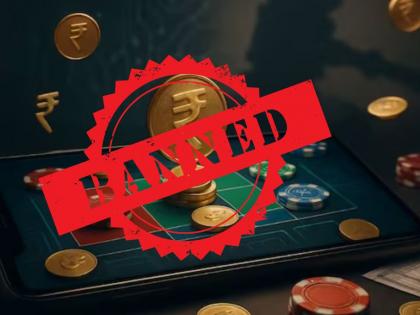Resetting India's Gaming Future: Mental Health Over Money Games
By Hemant Jain | Updated: September 2, 2025 14:17 IST2025-09-02T14:16:01+5:302025-09-02T14:17:06+5:30
The Promotion and Regulation of Online Gaming Bill, 2025 has reshaped the online gaming landscape by banning real-money games, ...

Resetting India's Gaming Future: Mental Health Over Money Games
The Promotion and Regulation of Online Gaming Bill, 2025 has reshaped the online gaming landscape by banning real-money games, signaling a significant policy shift. The key objective of this bill is to establish a robust legal framework to regulate, promote, and encourage the online gaming sector for innovation and economic growth while ensuring a developed, safe, and responsible digital environment for all citizens. The government's justification for the ban on real-money games is based on several factors, including concerns about addiction and potential threats to national security. However, from my perspective, the Online Gaming Act, 2025 has the potential to play a significant role in protecting the mental, emotional, and financial well-being of pre-teens and teens by addressing the dangers associated with real-money games (RMGs). Many popular real-money games expose children and teens to gambling behaviours at a young age. By banning these games, the Act can prevent young people from getting involved in gambling, which could lead to long-term addiction and financial issues. Adolescents are more susceptible to developing addictive behaviours. RMGs, with their reward-driven nature, can lead to compulsive gaming, disrupting a young person’s education, social life, and mental health. Banning these games removes a major trigger for such behaviours.
The pressure to win money in RMGs can contribute to anxiety and stress, especially for young people who are still developing emotionally and psychologically. By removing these games, the Act can reduce the psychological toll on teens. Often, teens don’t understand the long-term financial implications of playing RMGs. Parents may face financial strain if their children or teens spend large amounts of money on these games. Banning RMGs shields families from unexpected financial loss linked to their children’s gaming habits. The Act promotes social gaming, which focuses more on fun, entertainment, and educational value rather than financial gain. This encourages young people to play in socially engaging ways, rather than isolating them in pursuit of money. While RMGs are banned, e-sports are promoted and recognised as legitimate sports under the Bill. For teens interested in competitive gaming, this creates a regulated, healthy environment to pursue their passion without the associated risks of gambling.
The Act aims to curb the severe consequences of addiction, including the tragic suicides linked to online gaming in India. Addressing the root causes of addiction and promoting healthier gaming habits could save lives. With stricter controls on online gaming, young people will have a lower risk of falling into the mental health traps associated with compulsive gaming, thereby improving overall well-being. Nearly 45 crore Indians are losing close to Rs 20,000 crore every year to real-money online games, according to government estimates. The scale of the crisis has been alarming. Reports from different states reveal heartbreaking stories: young people trapped in debt, families destroyed, and even suicides linked to gaming losses. In Karnataka alone, 18 suicides in the past three years were connected to online money games. In Mysuru, a family of three died by suicide after losing Rs 80 lakh. Similar cases have been reported from Madhya Pradesh, Rajasthan, Mumbai, and Hyderabad, showing how widespread the problem has become.
These gaming platforms work on a zero-sum model: a situation where one person's gain leads to another person's loss, and the net result is zero. Unlike productive sectors of the economy, where both consumers and producers benefit (for example, buying a phone provides utility to the consumer and profit to the company), real-money gaming platforms rely on one participant’s loss for another’s profit. In short, by introducing the Online Gaming Act, 2025, the government has taken a proactive approach to protect the younger generation from the harmful effects of addictive online gaming, showing great concern for the mental health of young Indians.
The government is actively working to pave the way for e-sports to thrive. It's promoting skill-based gaming and creating career opportunities while regulating the industry to reduce the risks associated with gambling or addictive gaming behaviors. The direction is clear: foster innovation, offer a career path in gaming, and ensure a responsible gaming ecosystem. This vision aligns with India's goal of becoming a global leader in technology and innovation, ensuring that youth have opportunities to excel in fields that can offer long-term benefits.
Open in app